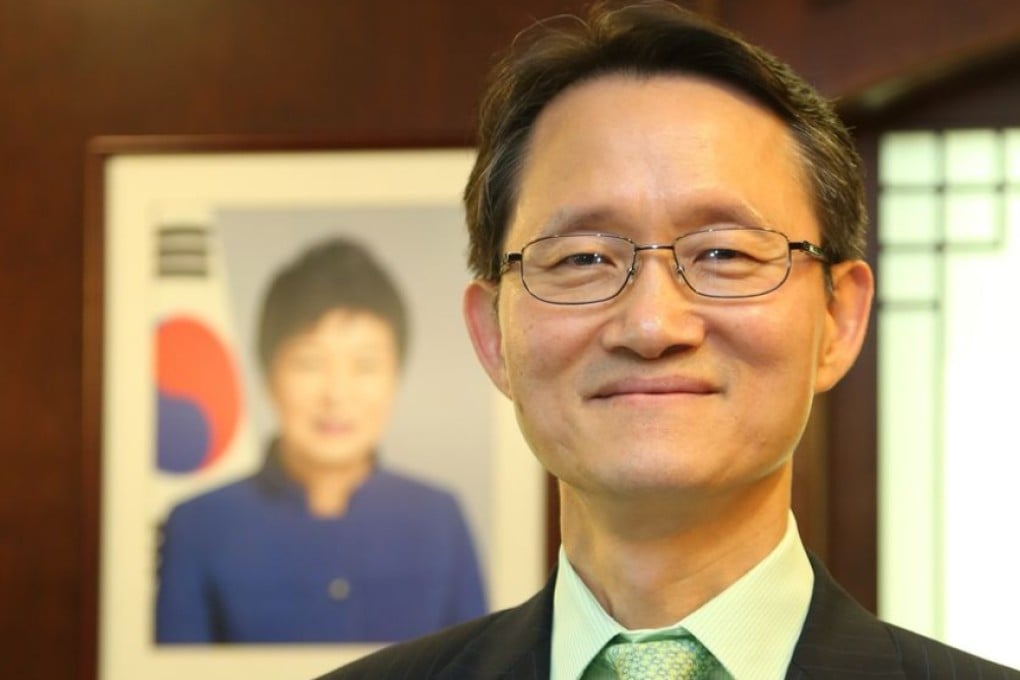MESSAGE
Looking back on last year, even though the overall economic situation was difficult, there was still good news from South Korea. Korea's trade had recorded a surplus for 35 consecutive months, the trade volume was a record high, US$1.1 trillion, while the trade surplus was US$45 billion and export record was US$575 billion. During the Apec CEO Summit 2014 in Beijing, South Korea and China negotiated a Korea-China FTA, which will provide institutional support for Korean businesses in China and Hong Kong in the future.

Looking back on last year, even though the overall economic situation was difficult, there was still good news from South Korea. Korea's trade had recorded a surplus for 35 consecutive months, the trade volume was a record high, US$1.1 trillion, while the trade surplus was US$45 billion and export record was US$575 billion. During the Apec CEO Summit 2014 in Beijing, South Korea and China negotiated a Korea-China FTA, which will provide institutional support for Korean businesses in China and Hong Kong in the future.
The world is moving into the era of innovative convergence which means incorporation between different industries is important. Countries are trying to explore new opportunities for growth. Creative economy could be one of the most prominent breakthroughs for the new phase of growth. South Korea has experienced outstanding accomplishments in the electronics and ICT industries over the decades. As a new growth engine to boost the economy, the South Korean government has put forward the "Creative Economy" vision as its core national agenda. A creative economy is one that creates high added value by harnessing the creative ideas of individuals and by converging science and technology with traditional industries such as the car and shipbuilding industries. It can be between industries or between industry and culture, eventually it will create new markets and job opportunities. I hope this new approach provides useful implications for Hong Kong's economy.
When Chief Executive Leung Chun-ying visited South Korea last November, Hong Kong and South Korea signed a Memorandum of Understanding intended to lead cooperation in cultural industries, such as advertising, architecture, entertainment, film and music. Both sides agreed to continue to work on cooperation for young people. The Hong Kong government promised it would consider establishing a Hong Kong Economic and Trade Office (ETO) branch office in Seoul. If the ETO office is established in Seoul, the relationship between South Korea and Hong Kong will be strengthened, especially in terms of trade, investment, tourism and cultural exchanges.
Hong Kong and South Korea have been close global partners in terms of trade and industries for years. Hong Kong is the seventh biggest investor in South Korea and the third biggest investment destination for South Korean companies in 2014. The number of South Korean companies opening offices in Hong Kong is around 1,700, and the trade between Hong Kong and South Korea is about US$30 billion. Given the complementary economic structures of the two places, we have limitless potential for cooperation. South Korea maintains world-class competitiveness in manufacturing, while Hong Kong has advanced service industries and global networks.
I believe we can benchmark the strengths of each other in further developing our two economies. The South Korean consulate will continue to do its best to promote relations between Hong Kong and Korea for further development.
Cho Yong-chun
Consul General of the Republic of Korea in Hong Kong